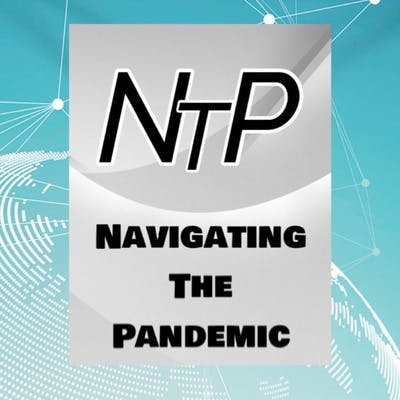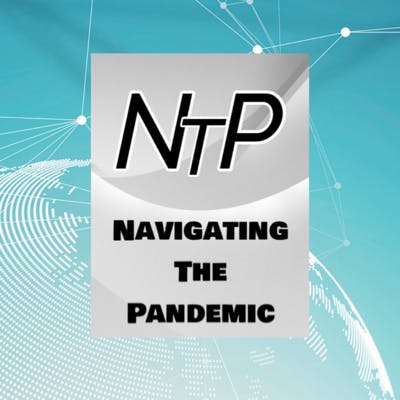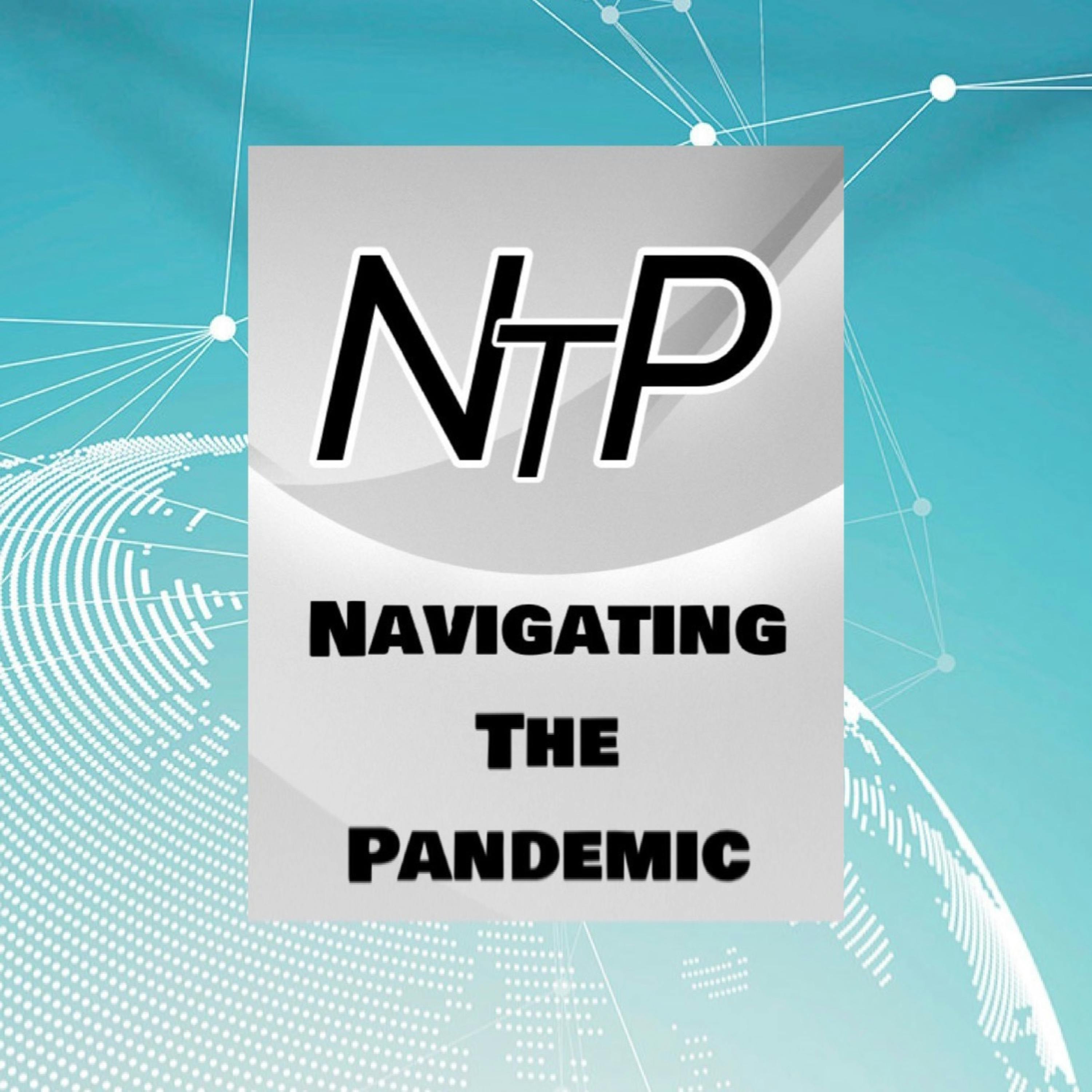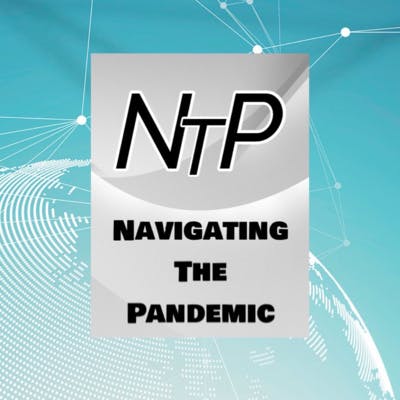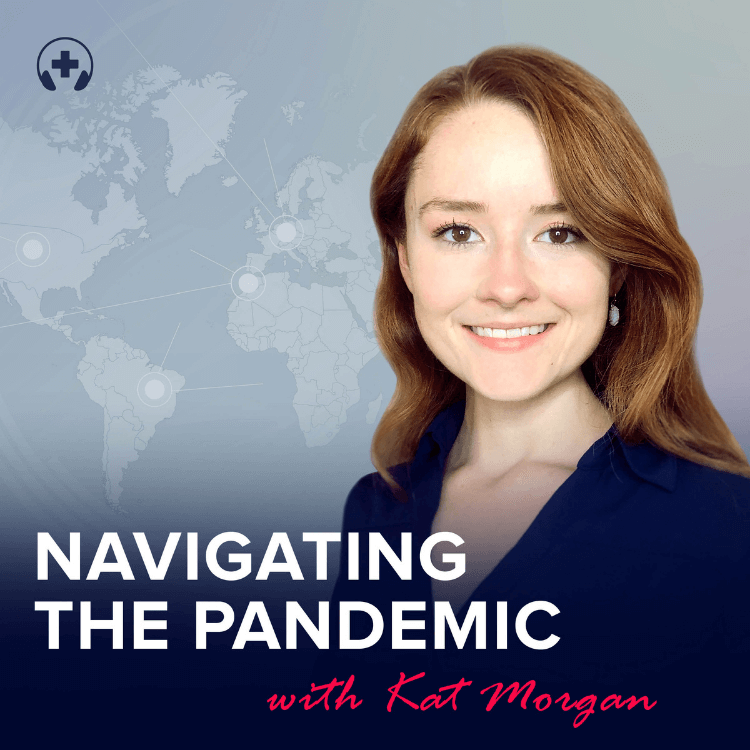
Navigating the Pandemic
Stay informed about COVID-19 in our ever-changing world.
All Episodes
Young Professionals in Public Health Pt 1
In this two-episode series, we delve into the perspectives of young professionals in the field of public health, both graduates of the esteemed Columbia Mailman School of Public Health: Rachel Sadoff and Eli Binder. Sadoff's passion lies in global health policy, specifically focusing on international relations, One Health, tackling disparities among vulnerable populations, and envisioning the future of pandemic control. On the other hand, Eli brings expertise in epidemiology disease surveillance, burden monitoring, and ethical data collection.
https://scholar.harvard.edu/rachelsadoff
https://www.linkedin.com/in/elimbinder
June 23, 2023
The Epidemiology of COVID-19: Future Impacts, Research, & Response
In this episode I interview Dr. Matthew Lamb, an Assistant Professor of Epidemiology at the Columbia University Medical Center focusing on infectious disease prevention, treatment, and scale-up. We discuss types of epidemiological research that shape how we have responded and adapted, how the pandemic has changed COVID-19 research, health disparities, and how we’re determing long-term effects of Covid through different types of epidemiological studies.
Matthew Lamb, PhD is an epidemiologist focusing on infectious disease prevention, treatment, and scale-up. His research focuses on identifying best practices in public health approaches to HIV prevention, service delivery, and treatment in resource-limited settings.
https://www.publichealth.columbia.edu/people/our-faculty/mrl2013#:~:text=Matthew%20Lamb%2C%20PhD%20is%20an,resource%2Dlimited%20settings.Dr.
January 12, 2023
COVID-19 Personal Risk & Community Vulnerability
In this episode, Dr. April Moreno discusses COVID protections for individuals now that it is becoming more of a personal risk assessment to navigate the new normal. We discuss mental health and isolation, the immunocompromised community, and how the social determinants of health affect how communities protect themselves. Dr. Moreno holds a doctorate in health promotion sciences and information systems technology and is a seasoned public health professional and podcaster.
Dr. Moreno’s Recommendations for COVID personal protections:
Local drugs stores have KN95s available for free.
CDC Find Free Masks
Have air filters and keep your windows open for ventilation.
DIY box fan air filter
Wash your hands.
When you live with or near others, wear your mask indoors.
Other resources:
Public Health Podcast Network: https://www.publichealthpodcasters.com/
The Peoples Public Health Conference: https://www.thepeoplespublichealth.org/
October 9, 2022
Supporting Health Equity through Community Initiatives During COVID
What does it take to support health equity and access to care at the community level during a pandemic?
I was pleased to welcome Dr. Alexander Solerno of Solerno Medical Associates on the show to discuss how community initiatives can bridge gaps in accessing care during COVID. Dr. Salerno speaks about his initiatives, the Community Healthcare Outreach Program and Urban Healthcare Initiative Program in Newark, NJ, which deliver care at the community level.
Website: https://salernomedical.com/
Facebook: https://www.facebook.com/SalernoMedicalAssociates
UHIP: https://uhipnj.org/
Suggested reading:
Lifelines: A Doctor's Journey in the Fight for Public Health
June 29, 2022
12. Patterns of Inequality in Global Disease Response & COVID-19 with Dr. Boghuma Kabisen Titanji
A collective push for global vaccine equity will help us circumvent unnecessary suffering and deaths, protect economies, and mitigate against new virus variants.
I have the pleasure of welcoming Dr. Boghuma Titanji, a medical doctor and clinical researcher, for this episode on patterns of inequality in global disease response and coordinated action in the fight against COVID. We also cover discuss why it’s in the best interest of all countries to continue supporting equitable vaccine dissemination.
Dr. Titanji recently coauthored an article in The Atlantic titled: The Pandemic Is Following a Very Predictable and Depressing Pattern, which I encourage listeners to check out along with the other resources listed below.
Other resources:
Morgue data hint at COVID’s true toll in Africa, Nature
Accelerating an Effective and Equitable COVID-19 Response and Pandemic-proofing the Future, Pandemic Action Network
It is not too late to achieve global covid-19 vaccine equity, BMJ
April 9, 2022
11. Health Systems Resiliency in Latin America with Dr. Katherine Bliss
This podcast was nominated for "Best Health Podcast" in the Quill Podcast Awards!! Thank you to everyone who supports the show!
Listen to Dr. Katherine Bliss, Senior Fellow & Director of Immunizations and Health Systems Resilience at the Center for Strategic and International Studies. We discuss Latin American healthcare systems before, during and beyond the pandemic as well as recommendations to build back better and improve system resiliency in response to COVID.
Further reading:
PAHO resources:
Read "Coordinated action needed to strengthen health systems in face of future challenges, PAHO Director tells high-level Atlantic Council meeting"
Watch Health Systems Resilience: Lessons from the COVID-19 Pandemic
World Health Worker Week is April 4 - 8
Music Credits: The intro and closing music was specially produced for this podcast by Madison Swann.
March 19, 2022
10. Urban Farming & Cultivating a Food Secure Post-Pandemic Future with Laurell Sims
Listen to Laurell Sims, co-founder of Urban Growers collective, discuss how COVID-19 food insecurity has impacted Black and Brown communities on the South and West Sides of Chicago, and how the Urban Growers Collective has tackled this issue with emergency food relief programming. We close the show by discussing how local food cultivation is effective for people and planet in improving food access and well-being.
Check out the Urban Growers Collective website!
Donate to the Urban Growers Collective here.
Further reading:
Forbes article “How Nonprofits And Local Farmers Can Lead The Fight Against Hunger Post-Pandemic” (USA focus)
Brookings report “Beyond ‘food deserts’: America needs a new approach to mapping food insecurity” (USA focus)
Read World Bank brief “Food Security and COVID-19” (Global focus)
Music Credits: The intro and closing music was specially produced for this podcast by Madison Swann.
February 27, 2022
9. Early Pandemic Food Insecurity & Racial Disparities, USA with Dr. Danielle Morales
“This study shows there is a direct link between race or racism and food insecurity.” - Dr. Danielle Morales
COVID-19 has exacerbated food injustice and food insecurity as disparities in access and supply have left many Americans hungry. Understanding this problem is key to pandemic preparedness.
In this episode, household food insecurity is defined as the limited or uncertain ability to acquire adequate food for one or more household members.
Read Racial/Ethnic Disparities in Household Food Insecurity During the COVID-19 Pandemic: a Nationally Representative Study
(Danielle Xiaodan Morales, Stephanie Alexandra Morales, and Tyler Fox Beltran)
Read Feeding America’s resources on Food Insecurity and COVID-19
Music Credits: The intro and closing music was specially produced for this podcast by Madison Swann.
February 13, 2022
8. Covid Mental Health Outcomes & Social Determinants with Dr. Mir Ali
In this episode, Dr. Mir Ali, a Health Economist at the US Department of Health & Human Services, discusses his research brief, Mental Health Consequences of COVID-19: The Role of Social Determinants of Health. Dr. Ali shares insights on how we can better measure structural drivers of health inequities and provides examples of current government programs that are actively taking on the challenge.
Read Mental Health Consequences of COVID-19: The Role of Social Determinants of Health on the HHS website.
Other resources:
HHS-HUD Partnership – Housing and Resources Service Center
CMS - Roadmap for States to Address the Social Determinants of Health to Improve Outcomes
CDC – Implemented several programs to address SDOH
HRSA – Funding opportunities for providers to incorporate SDOH
Mir M Ali Bio: Dr. Mir M. Ali is a Health Economist at the US Department of Health & Human Services, Office of the Assistant Secretary for Planning and Evaluation (ASPE). A specialist in behavioral health economics, Dr. Ali focuses his research on mental illness, substance abuse, and issues of behavioral health policies affecting children and adults. He has authored 100+ peer-reviewed journal articles and numerous government reports on behavioral healthcare systems and policies. More information on Dr.Ali's research is here.
Music Credits: The intro and closing music was specially produced for this podcast by Madison Swann.
January 23, 2022
7. Season 2 Introduction: Social Determinants of Health
This podcast is a tool for you to stay informed about COVID-19 in our ever-changing world.
This season’s theme is the social determinants of health, where I plan to delve into societal implications of COVID, from economic and working conditions, to housing, food access, and more.
Episode Resources + suggested readings:
Healthy People U.S. HHS on the Social Determinants of Health: https://health.gov/healthypeople/objectives-and-data/social-determinants-health
World Health Organization on the Social Determinants of Health: https://www.who.int/health-topics/social-determinants-of-health#tab=tab_1
COVID-19 and the impact of social determinants of health: https://www.ncbi.nlm.nih.gov/pmc/articles/PMC7234789/
Kaiser Family Foundation Tracking Social Determinants of Health During the COVID-19 Pandemic: https://www.kff.org/coronavirus-covid-19/issue-brief/tracking-social-determinants-of-health-during-the-covid-19-pandemic/
Music Credits: The intro and closing music was specially produced for this podcast by Madison Swann.
December 28, 2021
6. Transforming Clinical Trial Research with Kenneth Getz and Taqiyya Alford
This episode features two voices from the clinical trial industry: Kenneth Getz, the Executive Director at the Tufts Center for the Study of Drug Development and Taqiyya Alford, a Clinical Research Coordinator at Emory University. Both guests discussed the ongoing and future impacts of COVID-19 on clinical trials.
Ken Getz is the Director and a professor at the Tufts Center for the Study of Drug Development, Tufts University School of Medicine, where he conducts grant-funded research on pharmaceutical R&D management and execution; protocol design optimization, contract service provider and investigative site management, e-clinical technology and data usage and patient engagement. He is the chairman of CISCRP – a nonprofit organization that he founded to educate and raise public and patient awareness of the clinical research enterprise. A well-known speaker at conferences, symposia, universities, investor meetings and corporations, Ken has published extensively in peer-review journals, books and in the trade press and writes a bi-monthly column nominated for a Neal Award in Applied Clinical Trials. Ken received an MBA from the J.L. Kellogg Graduate School of Management at Northwestern University and a bachelor’s degree, Phi Beta Kappa, from Brandeis University. He is the founder of CenterWatch, a leading publisher in the clinical trials industry, and one of several businesses that he has created and sold.
Taqiyya Alford is a Clinical Research Coordinator at the Emory University School of Nursing and Operations Manager with the Emory Urban Health Initiative. She currently manages two studies at the Nell Hodgson Woodruff School of Nursing and has a diverse background in rehabilitation, clinical research, and pharmaceutical work. She is a recent Masters in Public Health graduate of South University in Savannah, GA.
For more information about the Tufts Center for the Study of Drug Development, the future of clinical triels, and the “Last Mile” for COVID vaccination, access the links below:
https://www.appliedclinicaltrialsonline.com/
https://www.appliedclinicaltrialsonline.com/view/covid-19-and-its-impact-on-the-future-of-clinical-trial-execution
https://www.appliedclinicaltrialsonline.com/view/public-trust-and-the-last-mile-for-covid-19-vaccines
Information on the Emory University Nell Hodgson School of Nursing research:
https://nursing.emory.edu/faculty-and-research/onr/index.html
February 11, 2021
5. Demystifying COVID-19 Public Health Data with Dr. Jennifer Shin
Today’s show features Jennifer Shin. She is the Founder of 8 Path Solutions, a data science, analytics, and technology company. An experienced data scientist and management consultant, she has led high profile projects in various roles, including Director of Data Science at Comcast, Senior Principal Data Scientist at The Nielsen Company and has served as a Management Consultant at GE Capital, the Carlyle Group, Fortress Investment Group, the City of New York, and Columbia University. She currently holds faculty positions at NYU and Brandeis University.
Explore stages of the COVID-19 data value chain:
https://opendatawatch.com/what-is-being-said/data-in-the-time-of-covid-19/
Jennifer Shin’s Work:
https://www.8pathsolutions.com/
Using Public Health Data Sources LinkedIn Learning course:
https://www.linkedin.com/learning-login/share?forceAccount=false&redirect=https%3A%2F%2Fwww.linkedin.com%2Flearning%2Fusing-public-health-data-sources%3Ftrk%3Dshare_ent_url%26shareId%3Dde7be704-2648-4af5-b03b-3bef94627b74&account=2149178
January 25, 2021
4. Travel Industry Regulations and Requirements with Catherine Hamm
Today’s show features Catharine Hamm, a leading voice in travel and media. She is the former Travel editor for the Los Angeles Times and became a special contributor in June 2020. Hamm has twice received individual Lowell Thomas Awards, and the Travel section was recognized seven times during her tenure as editor. She currently mostly writes about travel consumer news.
We discuss what the travel industry will look like in the U.S. and abroad in 2021, from destination entry requirements to airline safety regulations, the recovery of the travel industry, and tips for safely satisfying your travel itch over the coming months.
Hamm’s articles referenced in the episode:
1. https://www.latimes.com/travel/story/2021-01-08/will-you-need-covid-19-vaccine-fly-2021
2. https://www.latimes.com/travel/story/2020-12-22/should-the-covid-19-vaccine-figure-into-the-future-of-flying
A Guide to the New Covid-19 Testing Rules for Travel to the U.S.:
https://www.wsj.com/articles/the-new-covid-19-testing-rules-for-travel-to-the-u-s-what-they-mean-for-you-11610566341
CDC’s Travel Recommendations and Safety Tips:
https://www.cdc.gov/coronavirus/2019-ncov/travelers/index.html
January 16, 2021
3. Coronavirus Conspiracy Theories and Scientific Misinformation with Dr. Toby Bolsen
In this episode, we transition back to discussing the pandemic from domestic view in the U.S. Today’s show focuses on Media, Conspiracy theories, and the public health impact of exposure to framed messages about the origins of Covid-19. I have the pleasure of speaking with Dr. Toby Bolsen, an associate professor of American Politics and Political Science at Georgia State University.
Professor Bolsen’s research focuses on the study of political communication, public opinion, political behavior, experimental methods, and U.S. energy and climate policy. He’ll discuss the role that COVID-19 conspiracy theories play in influencing public health messaging and pandemic mitigation, particularly how these theories contribute to the spread of misinformation and steps that can be taken to address damaging conspiracy rhetoric.
Access the research here:
https://journals.sagepub.com/doi/full/10.1177/1075547020953603
WHO Information on reporting scientific misinformation online:
https://www.who.int/campaigns/connecting-the-world-to-combat-coronavirus/how-to-report-misinformation-online
January 2, 2021
2. COVID-19 and Global Food Insecurity with Dr. Vasily Erokhin
Today’s show focuses on COVID-19’s impact on food insecurity in the developing world from the scope of global economics and trade. I have the pleasure of speaking with Dr. Vasily Erokhin, an Associate Professor in the School of Economics and Management at Harbin Engineering University in China and also an Adjunct Professor at Key West University, Florida. We’ll focus on the interactions between the dynamics of COVID-19 cases, food trade, food inflation, and currency volatilities in regard to people’s food security status from the position of his most recent publication, Impacts of COVID-19 on Trade and Economic Aspects of Food Security: Evidence from 45 Developing Countries.
Access the research here: https://www.ncbi.nlm.nih.gov/pmc/articles/PMC7459461/
Learn more about global food insecurity here: https://www.wfp.org/emergencies/covid-19-pandemic
How does the World Bank classify countries? Due to the challenges and limitations of categorization, the World Bank is changing the use of the terms 'developing and developed countries' to the 'low and middle-income countries' and 'upper middle-income economies'. Read more below: https://datahelpdesk.worldbank.org/knowledgebase/articles/378834-how-does-the-world-bank-classify-countries
December 16, 2020
1. Public Health Law, Coping During COVID, and Superspreading Events with Dr. Polly Price, Dr. Nadine Kaslow, and Dr. Max Lau
Listen as voices from public health including psychiatry, law, and epidemiology help us understand COVID-19's present and future impacts.
Guest #1
Polly J. Price, Asa Griggs Candler Professor of Law, is also Professor of Global Health in the Rollins School of Public Health at Emory University. A public health law scholar as well as a legal historian and citizenship and immigration law expert, she has published, lectured, and taught widely about immigration and citizenship, public health law and regulatory policy, federalism, property rights, and the judiciary.
https://law.emory.edu/faculty/faculty-profiles/price-profile.html
Guest #2
Dr. Nadine Kaslow, is a professor and vice-chair for faculty development in the Department of Psychiatry and Behavioral Sciences and director of the Postdoctoral Fellowship Program in Professional Psychology, at the Emory University School of Medicine; Additionally, she is the Chief Psychologist of the Grady Health System.
http://psychiatry.emory.edu/faculty/kaslow_nadine.html
Guest #3
Max Lau is an assistant professor at Rollins School of Public Health in the Biostatistics and Bioinformatics department whose research interests include Disease Ecology and Infectious Disease Dynamics.
https://sph.emory.edu/faculty/profile/index.php?FID=max-lau-10935
Mental Health Resources
1. Coping With Pandemic Stress, CDC.gov
https://www.cdc.gov/coronavirus/2019-ncov/daily-life-coping/managing-stress-anxiety.html
2. Mental Health and Coping, HHS.gov
https://www.hhs.gov/coronavirus/mental-health-and-coping/index.html
November 24, 2020
About Navigating the Pandemic
By investigating the pandemic from multidisciplinary perspectives, we explore how the virus came to be and how it will continue to shape our collective future in individual, community, and international spheres. The show makes accurate and credible COVID-19 information accessible by amplifying expert voices.
Host
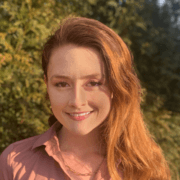
Kat Morgan, Podcast Producer and Host
Kat Morgan is a graduate of Emory University and incoming Master of Public Health candidate at Columbia University. With a holistic view of health and diverse academic background, her professional interests lie in health promotion, cultural competence, and community well-being.
